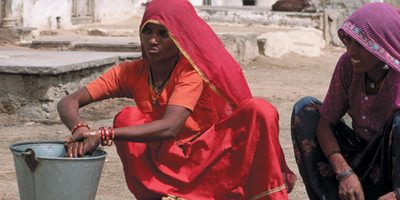
Diabetes, a disease no longer associated with affluence
Diabetes is a growing global epidemic killing 4 million people a year and costing $368 billion in healthcare. It affects 366 million people, a number set to increase to 550 million by 2030 if action is not taken. In India, the diabetes burden is expected to cross the 100 million mark by 2030 as against the previous estimate of 87 million. The country is also the largest contributor to regional mortality with 983,000 deaths caused due to diabetes in the year 2012.
The George Institute for Global Health supports World Diabetes Day and urges government and health professionals to ensure prevention and awareness are integral to programs managing diabetes.
"Diabetes affects the function of many vital organs such as heart, kidneys, blood vessels, nerves and eyes. Most of these complications can be prevented by timely investigations and appropriate lifestyle changes and drug therapy," says Professor Vivekanand Jha, Executive Director of the George Institute of Global Health, India
Despite diabetes being a leading cause of death and disability, affecting middle to low income countries like India the most, 50% of people with diabetes are undiagnosed and many people are unaware of their risks.
"Previously diabetes was mainly seen in older persons, but today more young people are being diagnosed raising serious concern," said Dr Pallab Maulik, Deputy Director at the George Institute for Global Health.
"More and more people from rural India are getting affected and it is longer a disease associated only with affluence. A study done as early as in 2005 by the George Institute of Global Health as part of the Andhra Pradesh Rural Health Initiative (APRHI) revealed that more people in rural India are now living with diabetes than ever due to change in food and lifestyle habits," added Dr D Praveen, senior research fellow at the institute, who had contributed to the project.
Subsequent studies done at the George Institute and by others have shown that the burden of diabetes is increasing tremendously earning India the epithet of the diabetes Capital. "Easy access to education about diabetes and how to prevent it is urgent given the epidemic proportions today of diabetes and obesity, a major risk factor," Dr Maulik said.
"People need to understand that it is the way we live that contributes to diabetes, and that those who develop the disease also face discrimination and stigma, adding another element to the disease that makes life difficult," he said.
While there is no permanent cure, diabetes can be prevented with healthier lifestyle choices like not smoking, exercising regularly and eating plenty of fresh vegetables. The George Institute is committed to reducing the toll of diabetes worldwide through its diabetes research program.
World Diabetes Day takes place each year 14 November.





